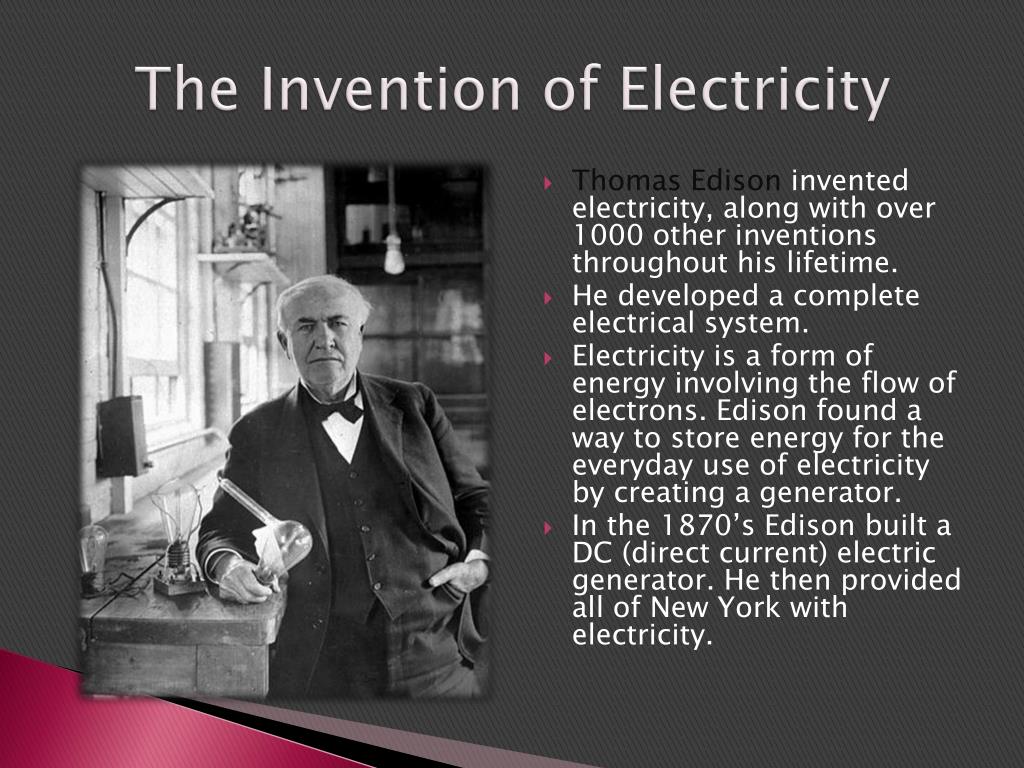Who Really Invented Electronics?
Discovering the Mind behind Electronics: An Exploration of the True Inventor

Source www.slideserve.com
Who Invented Electronics
Early Discoveries in Electricity
Before we talk about who invented electronics, we need to go back to the discovery of electricity. Electricity was first discovered by ancient Greeks, who noticed that rubbing amber against animal fur caused an electric charge. However, it wasn't until the 18th century that scientists began to understand electricity in more depth. Benjamin Franklin was one of the pioneers in electricity studies, famously conducting the kite experiment to demonstrate the presence of electricity in lightning. Alessandro Volta then went on to invent the first electric battery, paving the way for further electronic discoveries.
First Electronic Devices
The late 19th and early 20th centuries saw a flurry of electronic inventions. Thomas Edison made significant contributions with the invention of the incandescent light bulb and the phonograph. However, it was the vacuum tube - invented by Lee de Forest in 1906 - that revolutionized technology. The vacuum tube could control and amplify electrical signals, leading to the invention of radios, telephones, and televisions.
Another significant contributor in the early days of electronics was Nikola Tesla. Tesla's inventions include the AC motor, the Tesla coil, and the remote control.
The Birth of the Modern Computer
The invention of the modern computer is a complex story, with contributions from many scientists and inventors. However, John von Neumann is often credited with developing the concept of the stored-program computer. This meant that instructions could be stored in the computer's memory, allowing for more complex calculations and programs.
Alan Turing was also a key player in the development of computers. Turing's work during World War II included cracking the Enigma code, which relied on the use of an early form of encryption.
Grace Hopper is another trailblazer in the development of computers. Hopper was instrumental in developing the programming language COBOL, which allowed for easier computer programming and usage. Hopper is also credited with popularizing the term "debugging" for fixing computer glitches.
In conclusion, the invention of electronics is a story of many great minds working together to create the technology we use today. From the discovery of electricity to the development of the modern computer, each invention built upon the previous one, leading to the creation of countless gadgets and devices that have changed the world.
Who Invented Video Recording? A Brief HistoryImpact of Electronics on Society
Revolutionizing Communication
Electronic devices have revolutionized the way we communicate. It all started with the invention of the telephone by Alexander Graham Bell in 1876. Since then, communication technology has advanced rapidly. The development of the internet has enabled us to send messages and emails across the globe in real-time, and the invention of smartphones has made communication even more convenient.
Moreover, social media platforms like Facebook, Twitter, and Instagram have made it possible for us to connect with people from different parts of the world. With a simple click, we can share our thoughts, feelings, and experiences with our friends and followers, regardless of their location.
Changing Entertainment
Electronics have had a significant impact on the entertainment industry. The invention of the radio in the early 20th century enabled people to listen to music and news broadcasts from around the world. Television sets became a common feature in households in the 1950s, making it possible for people to watch live shows, movies, and documentaries.
With the advent of streaming services like Netflix, Hulu, and Amazon Prime, the way we consume media has drastically changed. We now have access to a wide variety of entertainment options, including TV shows, movies, documentaries, and even original content produced by these platforms. Electronic devices like laptops, tablets, and smartphones have made it possible to watch our favorite shows on the go.
Advancements in Medicine and Science
The use of electronics has led to significant advancements in medicine and science. Medical imaging technologies like Magnetic Resonance Imaging (MRI) and Computed Tomography (CT) scans have enabled doctors to diagnose and treat medical conditions with greater accuracy.
Electronic devices have also revolutionized the field of scientific research. From the invention of microscopes and telescopes to the space exploration missions, electronics have played a key role in enabling us to make groundbreaking discoveries about our world and beyond.
In conclusion, electronics have had a profound impact on society, from revolutionizing communication to changing the face of entertainment and improving our understanding of medicine and science. As technology continues to evolve, we can expect even more exciting advancements in the future.
John Froelich: The Man Who Invented the First Tractor